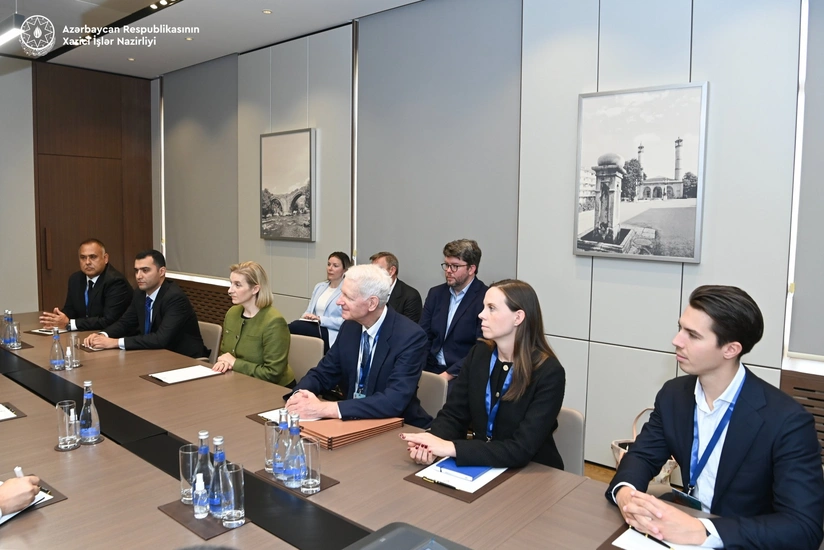Baku, September 8, 2025
Azerbaijan’s foreign minister Jeyhun Bayramov on Friday met with members of a U.S. trade mission focused on the so-called Middle Corridor, a transport route that links Asia to Europe through the South Caucasus.
In a statement, Azerbaijan’s Foreign Ministry said the talks built on the August 8 meeting in Washington that brought together the presidents of Azerbaijan and the United States and Armenia’s prime minister. Officials described those agreements as a milestone that could expand regional cooperation while opening “broad prospects” for closer ties between Baku and Washington.
Bayramov pointed to projects that have turned Azerbaijan into a hub for east–west transit, including the Baku–Tbilisi–Kars railway, the Caspian Sea port at Alat, and the adjacent free economic zone. He stressed that the corridor would also connect Azerbaijan’s western regions with the Nakhchivan exclave, long isolated from the rest of the country.
Energy supplies dominated the discussion. Azerbaijan now exports natural gas to 14 countries, the ministry said, positioning itself as a key partner in Europe’s efforts to reduce reliance on Russian energy. Baku is also working with partners on renewable projects, including plans for a high-voltage cable under the Black Sea to deliver green electricity to European markets.
The ministry added that the two sides also exchanged views on regional partnerships, particularly with Central Asian states that form the eastern flank of the Middle Corridor.
The outreach reflects Baku’s broader effort to capitalize on momentum from the Washington declaration in August, which underscored U.S. support for a peace deal with Armenia and deeper energy cooperation. By linking the Middle Corridor to Europe’s energy security, Azerbaijan is seeking to position itself not only as a regional transit hub but as a strategic player in transatlantic politics.


